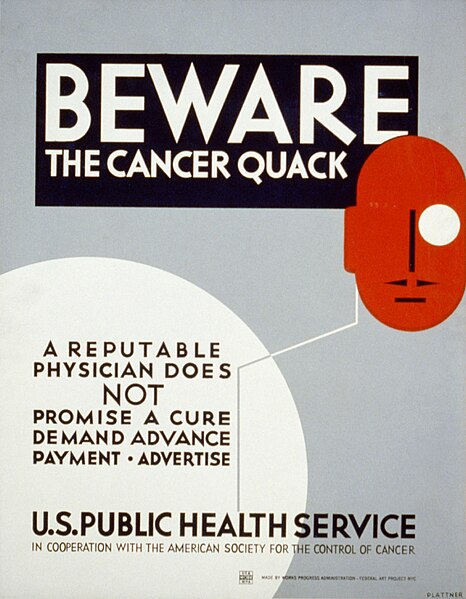Naturopathy, or naturopathic medicine, is a form of alternative medicine. A wide array of practices branded as "natural", "non-invasive", or promoting "self-healing" are employed by its practitioners, who are known as naturopaths. Difficult to generalize, these treatments range from the pseudoscientific and thoroughly discredited, like homeopathy, to the widely accepted, like certain forms of psychotherapy. The ideology and methods of naturopathy are based on vitalism and folk medicine rather than evidence-based medicine, although practitioners may use techniques supported by evidence. The ethics of naturopathy have been called into question by medical professionals and its practice has been characterized as quackery.
A homeopathic preparation of Hepar sulph – homeopathy can be offered as part of naturopathic treatment.
Sebastian Kneipp c. 1898, a Bavarian priest and forefather of naturopathy
Britt Marie Hermes c. 2016, a former naturopathic doctor and major critic of naturopathic medicine
A patient undergoing a hydrotherapy session
Quackery, often synonymous with health fraud, is the promotion of fraudulent or ignorant medical practices. A quack is a "fraudulent or ignorant pretender to medical skill" or "a person who pretends, professionally or publicly, to have skill, knowledge, qualification or credentials they do not possess; a charlatan or snake oil salesman". The term quack is a clipped form of the archaic term quacksalver, from Dutch: kwakzalver a "hawker of salve". In the Middle Ages the term quack meant "shouting". The quacksalvers sold their wares at markets by shouting to gain attention.
WPA poster, 1936–38
William Hogarth's The Inspection, the third canvas in his Marriage à-la-mode (The Visit to the Quack Doctor)
Pietro Longhi's The Charlatan (1757)
The Surgeon by Jan Sanders van Hemessen (1555)








